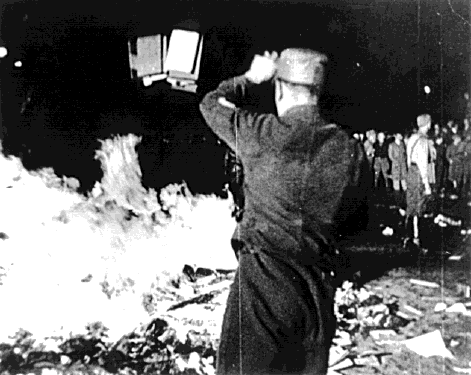eyeno wrote:From what I understand you can still get to sites that have been dns de-listed if you know the exact ip numbers? How do you go about getting the exact ip numbers for a site?
Overexplained below. In the case of Brandt's sites, he or someone has edited each domain's DNS zone to remove the "A" record that would give you an IP address for the site, so all his domains are still in existence (and all but scroogle.org had its registration renewed for another year just last month), but they're all neutered to remove the IP address.
There is a project to store historical DNS data:
http://dnshistory.org/but for scroogle.org, the 2 IP addresses it has on record aren't working either:
http://67.199.36.108/http://65.111.175.201/So unless anyone happens to have noted the last IP address for scroogle.org before this happened, we're shit out of luck.
eyeno wrote:For instance, I would not know how to determine RI ip number if it disappeared. How does all that work?
Windows: Start Menu -> type "cmd" into search box, hit return. DOS window appears. Type "nslookup rigorousintuition.ca" and hit return. It's the last IP address in the output.
Mac: Cmd-space, type "Terminal", hit return to open a Terminal window. Type either "nslookup rigorousintuition.ca" or "dig rigorousintuition.ca" and look for the line with "rigorousintuition.ca. IN A [_THE_IP_ADDRESS_]".
Linux: You already know how to do this
TI-99's: Eat bran muffin. Insert cassette marked "TCP/IP stack and MC Hammer mixtape" and type "load underpants". Wait.
In all cases: the answer is 66.147.244.173, which would be a way to access the site if Jeff's were shelling out for a dedicated hosting plan, but he's on the low-cost plan of shared hosting, which means that IP address is shared with many unrelated sites, and the server relies on the web browser software to send along the name of the site you're looking for, along with the rest of the page request, in order to know which site to serve up. The browser wouldn't know what domain you're trying to get to if you just pasted that IP address in and hit return, so that's why doing so turns up a generic error message with links to the hosting control panel. This is a fundraising and justdrew-effort issue, basically.
So then, normally, when you type in a domain or click on a link to a new site, your computer looks up the name to find the IP address, then connects to the server using that IP address, and makes the request for whatever page you want. It looks up the IP address by querying its local DNS server, which is generally either your home broadband/wifi router, or the ISP's DNS server if you aren't using a router -- in any case it's supplied to your computer by the box on the other end of the wire during the auto-configuration process. They cache the answers if they can, retrieving them from the nearest root DNS server in the first place, which keep each other synced and that's how we have decentralized global DNS -- rapid, robotic folklore. Acid-tripping bearded genius, right there.
Anyway, if the DNS entry for rigorousintuition.ca were edited [by somebody] to make it useless as is the case with all of Brandt's domains, that change would propagate globally within a few hours or less, generally, and then we'd all be shit out of luck unless we add the domain to our computers' own hosts file, which is like a DNS listing specific to your machine that you control. As long as the IP doesn't change, in such an event the browser would be able to get to the site seamlessly because the system would return the hosts file entry instead of the poisoned DNS results, so it would be able to include a proper "Name:" header that would tell Jeff's host you were looking for his site.
To edit your hosts file, here's some wiki instructions:
http://en.wikipedia.org/wiki/Hosts_(file)The line to add would simply be this:
66.147.244.173 rigorousintuition.ca
That would ensure that you could still get here if the DNS were shut off, but keep in mind that DNS is only one of several possible vectors of attack in taking down a site. The hosting company is easy to lean on if they're told it's a terrist site or some such, so that's why we need backups for our backups.
I recommend dedicated hosting in a bunker or Sealand or something, and/or DNS diversification using a geo-distributed DNS service like easydns or zoneedit, and/or a backup blog not owned by Google in case the blogspot disappears and he needs to tell us where the new board is. And/or a tor hidden service with a link on the hidden wiki.

